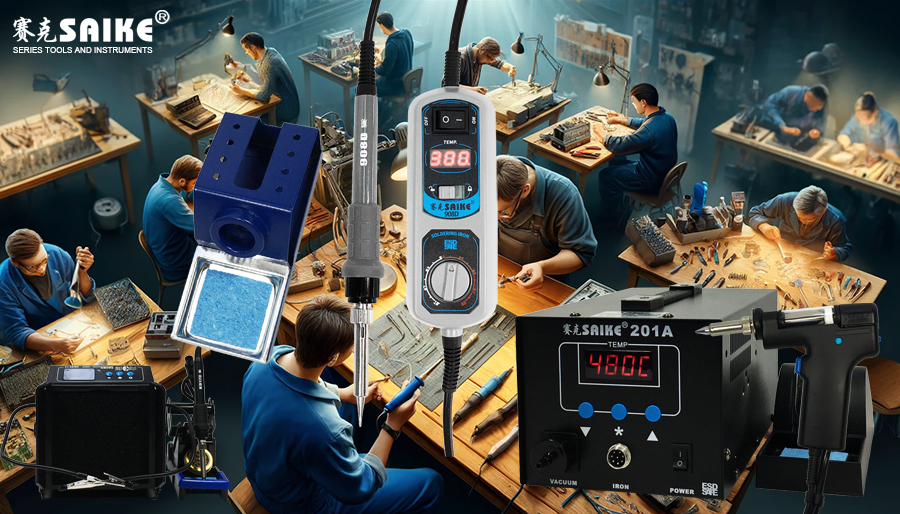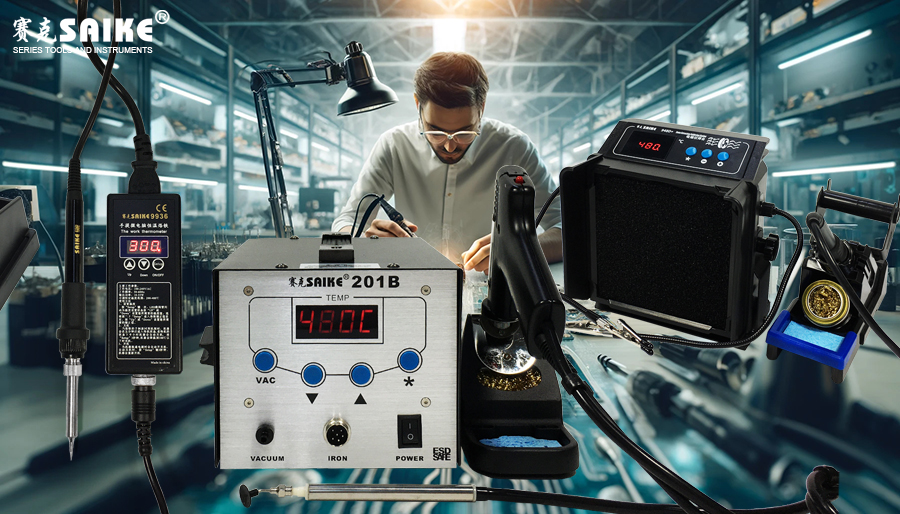
SK-YJ000DLT-KP 100007
When selecting a soldering iron, one should make an appropriate choice based on different application scenarios. Soldering irons are widely used in various crafts and industries, from electronic maintenance to carpentry production. Therefore, choosing a soldering iron that suits your needs is crucial. Here are some suggestions for choosing a soldering iron based on different application scenarios:
I. Electronic maintenance:
– For delicate soldering work, such as soldering on electronic circuit boards, a soldering iron with a fine tip is required. Usually, a pointed tip is chosen to facilitate precise soldering in confined spaces.
– Temperature control is a key factor in electronic maintenance, as different soldering materials require different temperatures. Choosing a soldering iron with adjustable temperature control ensures soldering quality and safety.
II. Metal processing:
– For metalworking fields, such as fabricating metal parts or repairing metal products, a soldering iron with higher power and heating speed is needed. This allows solder to melt faster and completes soldering more quickly.
– Considering the thickness and thermal conductivity of metal materials, selecting a soldering iron with appropriate power is essential. Thicker metal materials require a soldering iron with higher power to ensure soldering effectiveness.
III. Carpentry production:
– In carpentry, soldering or repairs are often needed on wood surfaces. Therefore, a soldering iron with a larger tip and lower power is suitable to prevent the wood from burning or deforming.
– For delicate carpentry projects, such as carving or decorating, a soldering iron with a replaceable tip can achieve soldering in different shapes and sizes.
IV. Household maintenance:
– For general household repairs and DIY projects, such as repairing appliances or furniture, a moderately priced and easy-to-use soldering iron is ideal. Such soldering irons usually have basic functions like temperature control and safety switches.
– Considering the frequency of household use and the complexity of projects, choosing a durable and easy-to-maintain soldering iron is essential.
V. Professional applications:
– For professional applications requiring prolonged use and high-precision soldering, such as electronics manufacturing or jewelry making, soldering irons with advanced technology and high performance are recommended. These soldering irons often feature digital displays, precise temperature controls, and automatic shut-off functions to ensure safety and stability.
– Selecting a soldering iron from a reliable brand with good after-sales service is crucial for long-term use and maintenance support.
VI. Summary
In summary, when choosing a soldering iron, it’s important to consider specific application scenarios, project requirements, and personal skill levels. By carefully comparing soldering irons of different models and functions and making informed choices based on actual needs, one can ensure the most suitable product for their requirements, enabling more efficient and safer soldering work.


